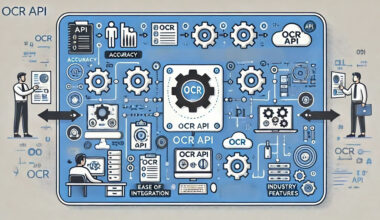Artificial Intelligence (AI) is no longer a futuristic concept; it’s a present-day reality radically transforming business operations and high-level strategy across industries. From automating complex processes to delivering actionable insights in real-time, AI enables organizations to reimagine value creation and redefine competitive dynamics. Early adopters of enterprise AI software are not only optimizing efficiency but also spearheading new models of innovation, creating market advantages rooted in intelligent automation and data-driven decision-making.
Organizations leveraging AI solutions are streamlining workflows, driving sustainable growth, and embracing an era where human expertise is augmented by machine intelligence. AI initiatives now underpin everything from predictive maintenance in manufacturing to hyper-personalized marketing in retail. As business leaders rethink their digital strategies, enterprise AI stands at the forefront, accelerating time-to-insight and elevating operational resilience.
AI Integration in Enterprise Strategy
Embedding AI into the heart of enterprise strategy is driving meaningful business outcomes. Large companies like Eaton are revolutionizing energy management by deploying AI-driven solutions, enabling greater grid stability and operational agility. According to a report by Harvard Business Review, organizations with mature AI integration demonstrate higher productivity rates and are better equipped to pivot during market disruptions. The adoption of AI enables leaders to transition from reactive to proactive management, leveraging real-time analytics to anticipate challenges and capitalize on growth opportunities.
Seamless integration of AI empowers businesses to scale innovation quickly, tailor customer experiences, and optimize core functions such as procurement, logistics, and finance. This foundational shift is not just about automation, but about reengineering business models to function smarter at scale.
Agentic AI and Its Impact
Agentic AI systems elevate enterprise transformation by functioning with greater autonomy. Unlike traditional AI, which supplements human-led processes, agentic AI independently makes and executes decisions autonomously. McKinsey research has shown that agentic AI can accelerate workflow throughput by up to 40% while drastically reducing error rates, enabling organizations to redeploy resources toward higher-value innovation tasks.
In financial services, for example, agentic AI now handles regulatory compliance checks and fraud detection, dynamically adapting to evolving threats without manual rule updates. As autonomous agents proliferate, they create streamlined environments where operations are not just faster, but also increasingly reliable and transparent.
Generative AI Driving Innovation
Generative AI is transforming enterprise capabilities by enabling organizations to go beyond traditional automation and analysis. By producing original content—ranging from text and images to code and predictive models—these tools allow companies to innovate in ways previously unimaginable. Businesses can rapidly design new products, craft personalized services, or explore entirely new business models, responding more effectively to evolving market demands. Studies, including those from the MIT Sloan Management Review, demonstrate that companies leveraging generative AI often experience accelerated ideation cycles, enhanced creative output, and stronger innovation pipelines, thereby gaining a competitive edge.
However, the technology also introduces complex challenges. Intellectual property rights can become unclear when AI generates content, while data privacy risks grow with the use of sensitive or synthetic datasets. Ethical considerations, including bias and misinformation, demand careful oversight. Organizations must proactively manage these risks by adopting compliance measures aligned with emerging regulations, such as the EU’s AI Act, to ensure the responsible and legally sound deployment of AI.
Responsible AI and Governance
As AI technologies increasingly permeate critical enterprise functions, establishing strong governance frameworks has become essential. Responsible AI initiatives focus on developing systems that are not only effective but also transparent, ethical, and aligned with established safety standards and regulations. Organizations are dedicating resources to comprehensive governance models that include regular audits, explainability frameworks, bias detection mechanisms, and continuous human oversight to identify and mitigate potential risks. These measures help prevent unintended consequences, such as algorithmic discrimination or opaque decision-making, while ensuring compliance with evolving regulatory requirements.
By prioritizing responsible AI, companies foster trust among stakeholders, including employees, customers, and investors, demonstrating a commitment to ethical innovation. These governance practices also provide strategic guidance for AI deployment, enabling organizations to make informed, values-driven decisions. Ultimately, embedding responsible AI principles lays the groundwork for sustainable growth, wider adoption, and long-term resilience in the rapidly evolving digital landscape.
Real-World Applications of Enterprise AI
AI-driven applications are transforming operations across industries. In supply chain management, AI accurately forecasts demand, improves procurement strategies, and predicts disruptions before they occur. Retailers utilize AI agents for inventory optimization and dynamic pricing models. At the same time, financial institutions employ AI-powered chatbots to automate routine customer interactions, thereby freeing up staff to focus on more complex cases. Healthcare organizations benefit from predictive analytics for patient care and resource allocation, exemplifying the broad impact and versatility of AI.
The value realized from AI implementation includes heightened agility, improved service quality, and the discovery of novel revenue streams, strengthening the case for enterprise-wide adoption.
Future Trends in Enterprise AI
Continuous learning systems, real-time adaptability, and AI-native organizational models characterize the future of enterprise AI. Companies will increasingly move from static process automation towards AI-driven ecosystems that sense, learn, and act autonomously. This shift will give rise to emerging executive roles, such as Chief AI Officer or Head of AI Governance, responsible for synthesizing business and AI strategy.
To harness the next wave of AI innovation, businesses must foster a culture of lifelong learning and cross-functional collaboration, adapting to new job profiles and ways of working as AI continues to mature.
AI’s influence on enterprise strategy is undeniable, reshaping how organizations innovate, compete, and create long-term value. By integrating AI into core business functions, companies can streamline operations, uncover new market opportunities, and make data-driven decisions with greater speed and accuracy. However, true success lies in striking a balance between innovation and ethical responsibility. Leaders must ensure transparency, fairness, and accountability in every AI initiative, safeguarding trust among employees, customers, and stakeholders. Encouraging collaboration between humans and intelligent systems fosters a culture of adaptability and continuous learning, where technology enhances—not replaces—human potential. When ambition is guided by responsibility, AI becomes more than a tool for efficiency; it becomes a catalyst for sustainable growth, empowering enterprises to remain agile, resilient, and purpose-driven in an ever-evolving digital economy.






